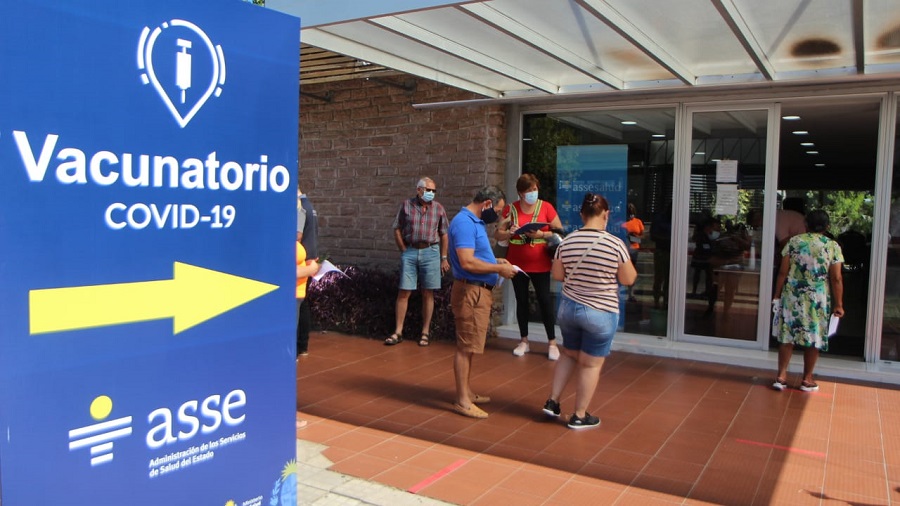RIO DE JANEIRO, BRAZIL – The government of Luis Lacalle Pou in Uruguay estimates that in June it will be able to implement the vaccine passport – key for the tourist sector to reactivate flights that existed before the pandemic -, as it considers the vaccination pace in the country appropriate, where 30% of the population has been administered at least one dose of anti-covid vaccines.
Undersecretary of the Uruguayan Ministry of Tourism Remo Monzeglio told newspaper El Observador that a “gradual” opening of flights will begin in June, but the measure also hinges on the success of the vaccination campaign in other of the region’s countries. “The two-month period is the minimum goal,” explained Monzeglio.

According to the Our World in Data website, Chile and Uruguay are among the 10 countries with the highest percentage of vaccinated people.
To implement the vaccine passport, authorities seek to update the Coronavirus Uy app for it to contain data certified by the Ministry of Public Health (MSP) that a passenger is vaccinated against Covid-19 and if he or she has been administered the two vaccine doses. In addition, this data in the app will be connected to Travel Pass, the app developed by the International Air Transport Association (IATA) that works as a digital health passport.
The Coronavirus Uy app will advise if the passenger holds a vaccine certification, if a swab was performed in a laboratory approved by the MSP and the travel itinerary, among other user data.
With this updated platform on a cell phone, upon arrival at the airport the passenger will only be required to present a QR code that will enable him or her to travel, or otherwise. “It is something that is here to stay,” Monzeglio said. “The Travel Pass is the instrument to reliably enter a country,” he added.
Uruguay is experiencing its worst pandemic moment, with a total of 167,033 positive cases since March 13th, 2020, when the health emergency was declared, and 1,971 deaths, half of them registered in April alone, according to the latest National Emergency System’s (SINAE) report.
The country purchased 3.8 million doses of Sinovac and Pfizer vaccines, of which more than 2 million have been delivered. In addition, it registered in the Covax platform, under the umbrella of the World Health Organization (WHO), and has received 48,000 doses from AstraZeneca.
According to the web monitor developed by the Ministry of Public Health (MSP), by Tuesday, April 20, the South American country has now inoculated 1,407,588 people, 1,075,285 with the first dose and 332,303 with the second dose.
The vaccination plan in the South American country began on March 1st with the inoculation of priority groups (police, firemen, military, teachers and workers of the Institute for Children and Adolescents under 60 years of age) using Coronavac. Given the lower than expected demand, surplus doses were sent to the country’s northern border and to the prison population.
Subsequently, the schedule would be opened to the population aged between 18 and 70, irrespective of their profession or risk situation.
On March 12th, immunization began using the Pfizer vaccine to health care personnel, which was later extended to senior homes and people over 80 years of age, until last week when it was finally opened to the 71 to 79 age group.
Last week, AstraZeneca doses also began to be administered in the department of Canelones (south), where the percentage of the population reached was much lower than in the rest of the country, and on the border with Brazil, which is heavily affected by Covid-19.
Source: Infobae

